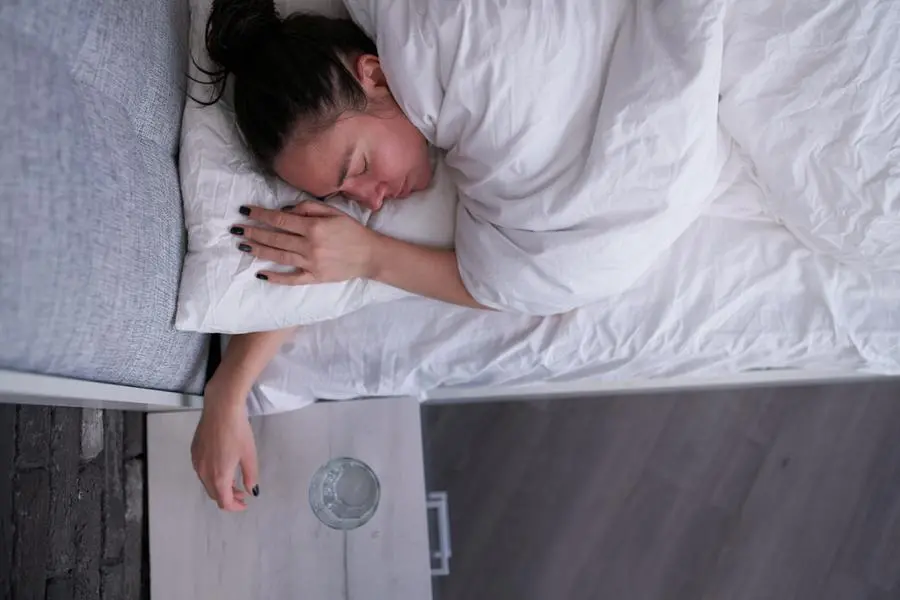Tertiary education can be an overwhelming experience for young adults. Many students are only just fresh out of high school and must now navigate a new world in which they’re responsible for themselves.
Some students also relocate to new towns where they don’t know anyone. At the same time, they must come to grips with a demanding workload while balancing a part-time job simultaneously. It can be a lot to deal with, so it’s not surprising that countless students experience anxiety. Despite being common, not all students know how to manage their anxiety and stress. If you’re in this very situation, consider the following advice:
Contents
Try CBD

Source: cedars-sinai.org
Hemp and hemp-derived products have now been legal for several years. As a result, you should have no problems finding CBD products to potentially help with any anxiety you’ve been experiencing related to your college experience. Hemp goods like Delta-8 gummies are popular for this reason.
Current studies suggest that CBD is a potential treatment option for anxiety disorders. While research into this subject is limited, preclinical evidence suggests it’s effective for reducing anxiety behaviors related to conditions like:
- Post-traumatic stress disorder
- Generalized anxiety disorder
- Obsessive-compulsive disorder
- Social anxiety disorder
- Panic disorder
Finding a product you like that provides the desired results might take time. However, there’s no harm in talking to your local hemp goods store employee to see what they would recommend.
Take Advantage of School Resources
Universities, colleges, and other schooling facilities are all about providing quality education for their students. However, education providers understand how challenging their programs can be. As a result, most facilities offer helpful resources for students to utilize when they need them the most.
Counseling services are among the most readily available, but some colleges now offer telehealth and group therapy sessions. Inquire with your school to see what you might be entitled to.
Don’t Isolate Yourself

Source: calmclinic.com
When you feel like you’re surrounded by happy and content college students, it’s easy to feel alone. You might think that no one else is experiencing what you are. With that in mind, you might naturally withdraw and isolate yourself. However, doing so is not in your best interest. In fact, social isolation might result in poor sleeping habits, poor physical health, and increased mental health challenges.
Knowing the potential health implications, take active steps to prioritize your mental health. Take time for self-care, involve yourself in social activities, and volunteer with groups or charities you’re passionate about.
Rely On Loved Ones
Moving to a new town, attending a new school, and living in a new house can all make you feel like you’re entirely alone. This can be especially true if you haven’t yet made any friends at your new school.
Don’t be afraid to reach out to people you know and trust. Technology can be a fantastic tool for staying connected, even if you can’t be with the people you love in person. You can reach out via text, phone call, video call, or social media whenever you’re feeling overwhelmed, anxious, or stressed.
Practice Self-Care
Burnout is a genuine reality for many college students. Between trying to study, work, and maintain a social life, it’s easy to become overwhelmed. However, practicing self-care might be how stressed-out college students find much-needed relief.
Something as simple as walking, cycling around your local park, or reading a book in a comfortable chair with a warm mug of tea might be all it takes to reduce your stress levels. Don’t forget to practice self-care often, not just when your anxiety levels are at their highest.
Improve Your Sleep Hygiene

Source: zawya.com
College can be a learning curve for many new students. You must find your new version of ‘normal’ while trying to fit in with your peers. During this settling-in period, it’s easy to let healthy sleep hygiene fall by the wayside.
However, given sleep’s importance for overall health and well-being, it can be essential to prioritize it. Start by going to bed at the same time each night and getting up at the same time each day. Avoid electronic devices at least an hour before bed, and refrain from drinking caffeinated beverages in the afternoon. Small changes might make a world of difference to your stress levels, study behaviors, decision-making, and even social skills.
Try Mindfulness Meditation
Mindfulness is a cognitive skill involving the awareness of your mind in the present moment. You don’t think of the past or the future. Instead, you focus on your body and its sensations in real-time. The goal of this therapeutic technique is to start accepting your feelings, thoughts, and sensations.
When combined with meditation, mindfulness becomes mindfulness meditation. In this practice, you can sit comfortably, start breathing through your nose, and focus on the breath as it moves in and out of your body. Whenever thoughts interrupt your practice, you can gently bring your mind back to the breath.
While mindfulness meditation might not be something you’ve ever considered, it can be a helpful tool for many people. Studies also suggest it’s a proven way to improve mental and physical health.
In over 200 studies, it was revealed that mindfulness-based therapy was effective in reducing stress, anxiety, and depression. It also proved helpful for specific problems like smoking, addiction, and pain. If you’re ready to explore mindfulness meditation for yourself, you can download apps and audiobooks or even find suitable guided meditation videos on online video platforms.
Eat Healthy Food

Source: blog.nasm.org
It’s hard to believe your diet can impact anxiety, but it’s possible. For example, salmon contains vitamin D and Omega-3 fatty acids, both of which may regulate dopamine and serotonin for relaxation and feelings of calm. Studies have already shown that vitamin D, in particular, is linked to a reduction in negative mood disorders.
While tempting to eat fast food for convenience, try to eat as many whole foods as possible. If you can’t prepare full meals, aim for nutritional snacks like berries, trail mix, popcorn, hummus, and yogurt.
Coping with college stress isn’t easy, especially as you can face many overwhelming life challenges. However, by taking some of the actions above, you might be able to limit how anxious and stressed you feel.
